The Sensation Surrounding
“Extraordinary Attorney Woo”
Twelve Thoughts on the Drama ‘Extraordinary Attorney Woo’
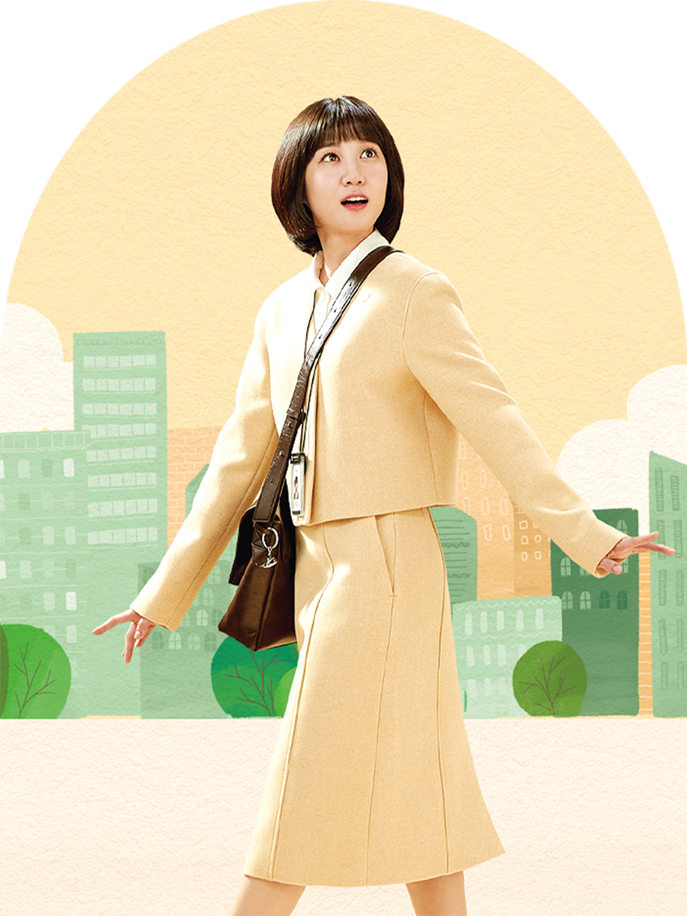
WRITTEN BY
Ahn Soong-beum,
film critic, professor at Kyung Hee University and director of the K-Cuture·Story Contents Research Institute
Photos courtesy of
Netflix
“Extraordinary Attorney Woo” was a drama broadcast on the new Korean cable channel ENA from June 29 to August 18, 2022. The show was placed on Netflix soon after its initial airing. A courtroom drama featuring a main character on the autism spectrum, the show puts on display several aspects of Korean society. In August 2022, the drama set a new all-time record in a Korean Gallup poll as Koreans’ most favorite K-drama.
The discourse surrounding “Extraordinary Attorney Woo” in Korean society appears to be very three-dimensional in nature. While the many reviewers who say that drama is viewer friendly are right, the show also includes a variety of sharp social issues inside a story that seems like an animated fantasy. In this article, I briefly summarize the notable storytelling moments of “Extraordinary Attorney Woo” and the social issues it covers that have left behind questions.
First off, “Extraordinary Attorney Woo” repeatedly employs the most universally used narrative techniques in popular dramas: solving cases and repairing conflict. It doesn’t focus exclusively on “problematic cases” and spends enough time on dealing with the relationships between the characters and the context of their feelings. But it doesn’t really use dramatic elements, and the short progression is also relatively fast.
Second, after creating a cast of main characters with different personalities, the drama used their stable set of relationships to the fullest to ensure continuation of the series. For example, the members of the Jung Myong-seok law team at Law Firm Hanbada serve in set, closed roles with Young-woo at the center. This network of stable relationships serves to increase predictability surrounding solving cases and repairing conflict. Meanwhile, the drama succeeds in producing tension for the audience into new unfamiliar directions by having every new episode include a decisive case and by having both the cases and characters accompanied by interesting topics.
Third, it seems to me that the Young-woo’s repeated use of her “circle” greeting, and the remarks used when greeting herself, may have been created to find their way into the online world as “memes.” The way of characterizing Young-woo’s facial expressions, movements and behaviors doesn’t stop at helping viewers understand someone who is on the autism spectrum. As one person has said, there’s criticism of the drama anthropomorphizing people with disabilities, but that in itself contributes to building a distinguished character IP.
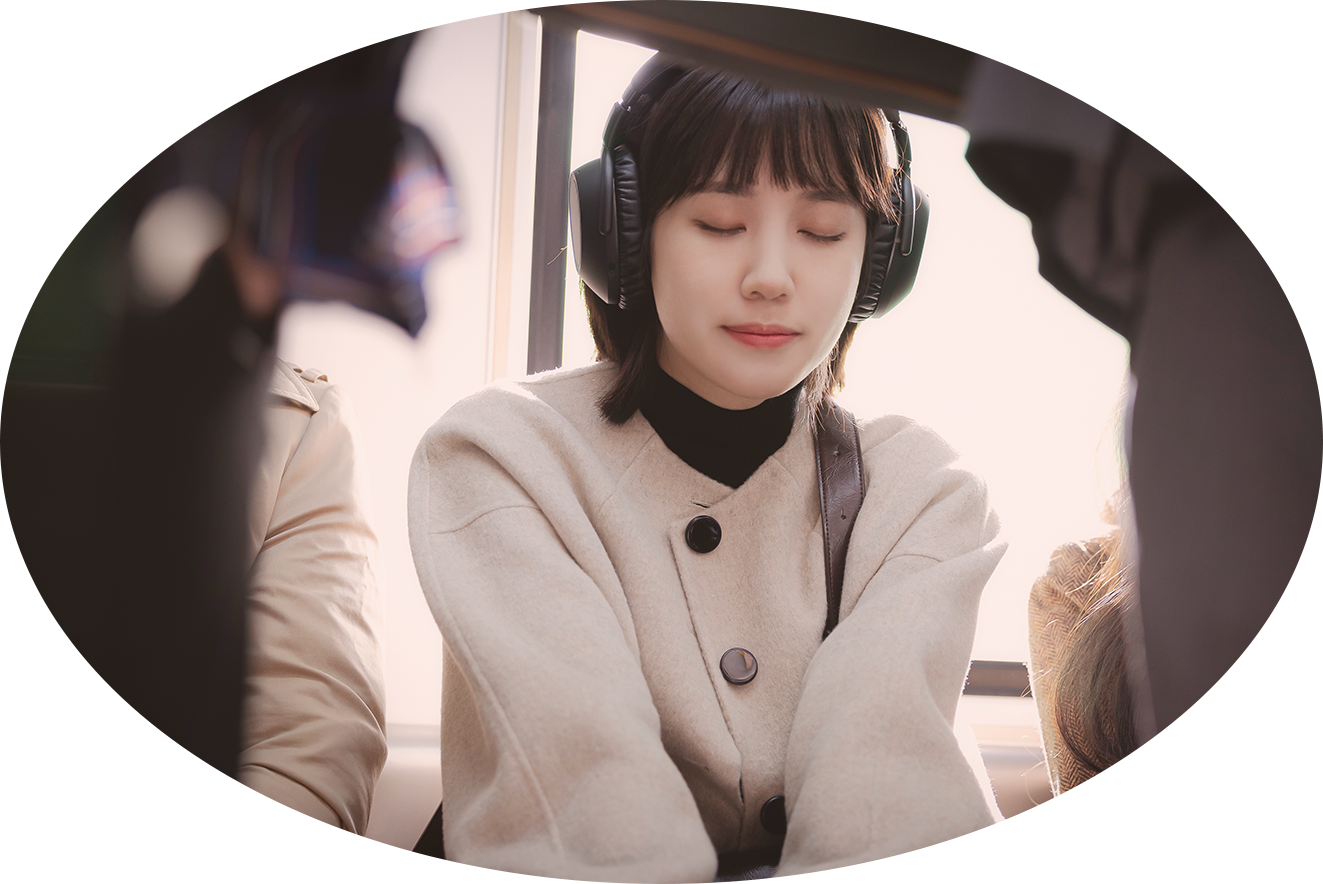
Scenes from ‘Extraordinary Attorney Woo’
Fourth, “Extraordinary Attorney Woo” experimentally uses an arch plot that in each episode has a clear rise and fall in conflict. Of course, given the lack of sufficient situational context to solve the problems at hand, there are twists used to resolve the conflict. The drama’s main character is someone with autism, so it effectively uses the plot device of her being a genius. A sort of deus ex machina appears repeatedly in the drama with a whale flying up in the sky and interesting encounters with special memories, imaginings and expectations. While they are somewhat rapid, they act as “sutures” at a level viewers can tolerate.
Fifth, the drama’s most dramatic pathos in its storytelling comes in relation to the fate of “loneliness” suffered by someone around Young-woo. Young-woo says in an ordinary tone, “My insides are full of myself, so I make people close to me lonely.” Despite the fact that Young-woo knows this, the drama reveals that she has difficulty turning that realization into changes in her attitude. The ultimate consideration that Jun-ho made in his relationship with Young-woo also poses the question of whether he can handle continuing that loneliness and tolerance. When this question grows more serious, however, Young-woo sweeps it under the carpet with her loveable charm. It’s somewhat unfortunate, but rather than calling it a problem, I believe that’s the narrative compromise that popular dramas must make.
Sixth, “Extraordinary Attorney Woo” deals in a light manner the social issues that exist in Korea through the use of a developmental and adventurous plot. In fact, the basic information about Young-woo’s social status isn’t particularly familiar or ordinary. In Korean society, lawyers, particularly those at large law firms, are an object of particular envy. Young-woo’s background as a genius who graduated from the top of her class at Seoul National University’s law school reminds viewers of the “uniqueness” that the drama bestows on its main character amid its hero narrative. That being said, Young-woo possesses a major difference in that she is on the autism spectrum. While it’s unfortunate, the difference she has with other people leads to discrimination against her. As a result, Young-woo doesn’t start from the pinnacle of the success story; rather, she departs from the bottom of a developmental narrative. Each episode is another chapter of her adventure in that process of development.
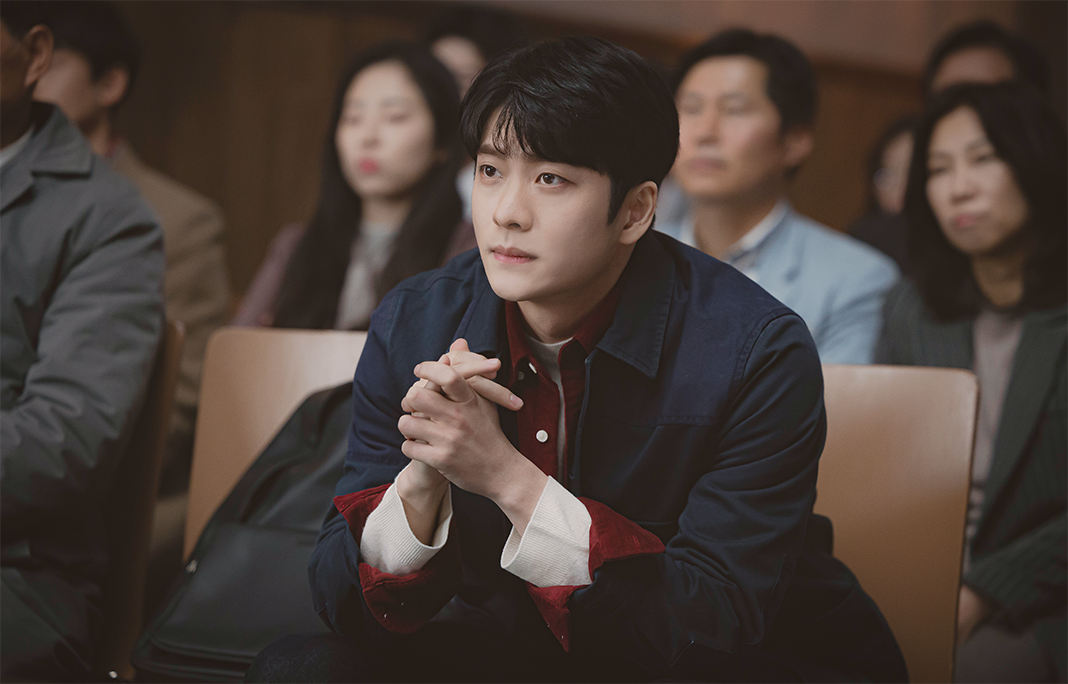
Scenes from ‘Extraordinary Attorney Woo’
Seventh, the spectrum of social issues dealt with in the drama is extremely wide. The judge who presses Ryu Pun-san reminds viewers of Korea’s culture of favoring blood relations. The show also touches on the social ills caused by school ties between those who attended Seoul National University and Hana University. Bang Gu-bbong, who is featured in the drama’s ninth episode, calls out the undeniable inertia of a society that places too much importance on schooling as he is accused of being a political offender and the sufferer of a delusional disorder. As the drama deals with these real issues through a variety of characters, the scene where Young-woo imagines a whale is less the animated transcendence of reality, but rather a moment where viewers can accept reality.
Eighth, the drama is a story about Young-woo meeting the mirror image of herself. People who have been alienated from society or are highly likely to become alienated go to the courts when they can no longer be pushed away. Each episode of the drama deals with lesbians, defectors, people with serious cases of autism, the intellectually disabled, and fired laborers who, caught in severe conflict, all suffer from discrimination in their own different ways. What’s interesting is that Young-woo doesn’t just blindly support their side of the story but also stands on the opposite view to fulfill her professional responsibility as a lawyer. It’s ironic, but that allows Young-woo to more frequently experience moments she can comprehend the ways of the world, which increase the amount of growth she experiences as well.
Ninth, Kwon Min-woo, who frequently acts as an antagonist among the protagonists, is an interesting character. Sometimes he shows the heights of Korea’s “fatigued society.” What makes things tough for him is not the genius Young-woo; rather, it’s the shadow of Korean society that says it’s OK to overlook ethics when it comes to finding ways to win in a competition. While this is the hidden and fundamental enemy in the society’s structure, the thing Min-woo focuses on is Young-woo’s perceived support from her father. In his eyes, Young-woo gains pity for being autistic, and may even be overestimated due to her status as a genius. He can be viewed as typical of the society’s unsocial and unethical (not anti-social and anti-ethical) utilitarians who are created by the structure of the “fatigued society.”
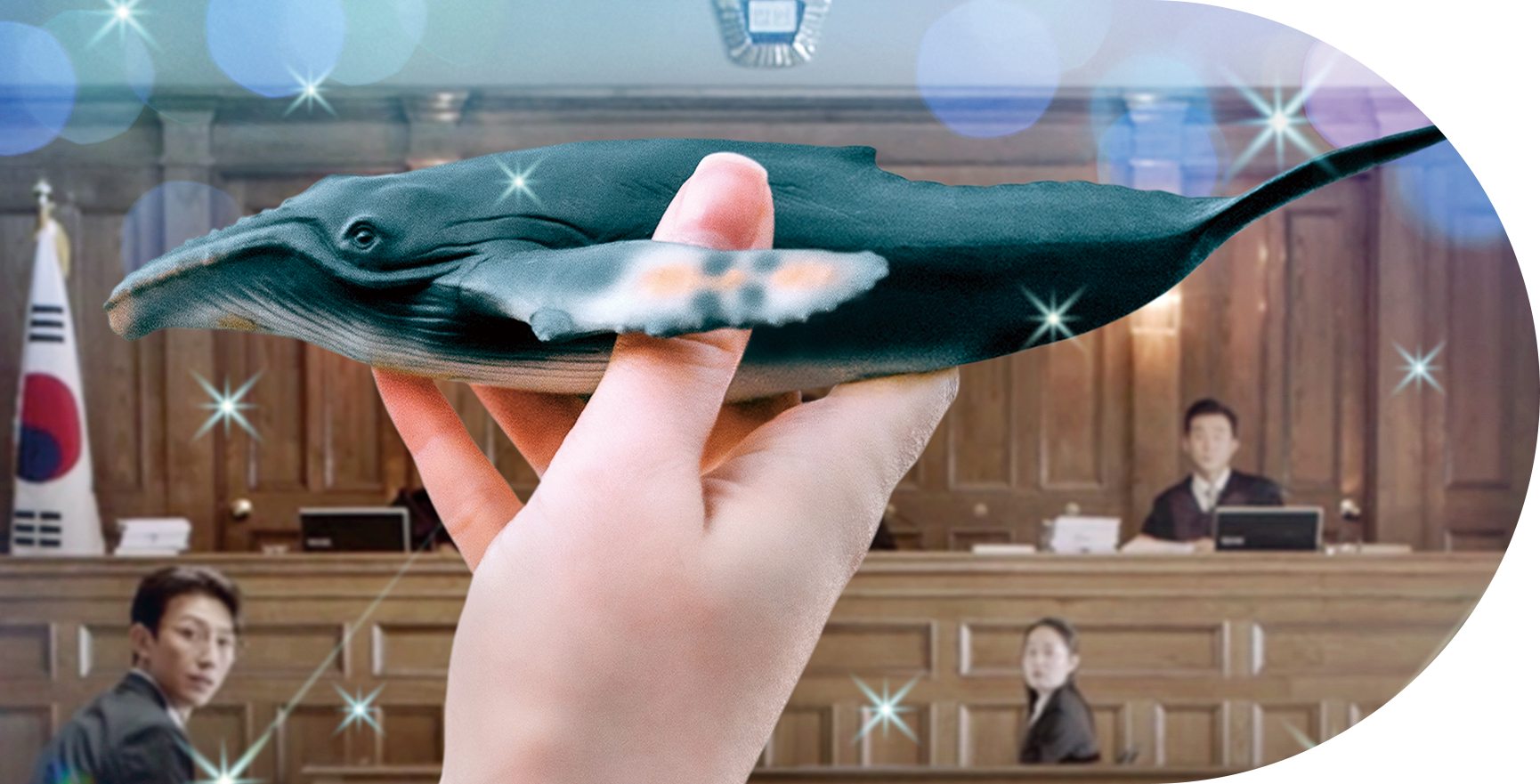
The whale brought an element of fun and dramatic effect to the series.
Tenth, when considering the wide “autism spectrum,” there’s the concern that various autistic people could be compared with Young-woo. This is related to the question posed, “Is our child’s disability like your child’s?” This concern is continually raised on the edges of the popular response to the drama. Even if some people with autism do have exceptional abilities, they may not have the high social utility of those enjoyed by Young-woo. As such, the Young-woo shown in the drama must be thought of as dramatized to be a very lovable character.
Eleventh, it is interesting that the drama deals with the sexuality of Hye-yong, an intellectually disabled woman who appears in the drama’s tenth episode. While viewing Korean society’s understanding and misunderstanding about the love between Hye-yong and Jong-il, Young-woo could have also objectified her love with Jun-ho. Hye-yong, however, never reveals her own emotions. She is portrayed as powerless as if she can’t make her own decisions about her love life. The use of such a character creates a heightened sense of tension, but it could also produce more misunderstanding than understanding about disabled people.
And lastly, “Extraordinary Attorney Woo” has many merits, notably that it is clear that it smartly moved away from being a narratively bland soap opera to becoming a clean-cut “healing drama.” For script writers well aware of how to produce successful Korean dramas, they could have placed more emphasis on the “past” that existed between Taesan’s Tae Su-mi, Han Ba-da’s Han Son-yong, and Young-woo’s father. That would’ve created a persistent connection going back and forth between the past and the present based on a complicated mix of secret stories that could lead to explosions of emotion. While the drama does talk about Young-woo’s “secrets related to her birth,” it’s not used as a repeated plot device aimed at stirring up emotion. Rather than showing frequent scenes of Young-woo eating meals worth 300 dollars on special days, she’s simply presented eating gimbap each and every day.
Other Articles
-

Special Ⅰ A Factory of the Arts
-

Special Ⅱ A Space that Tells a Tale
-
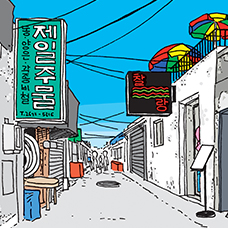
Trend Old Factories, Young Blood
-

Hidden View Wired World
-
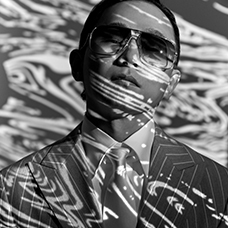
Interview Lee Heemoon
-
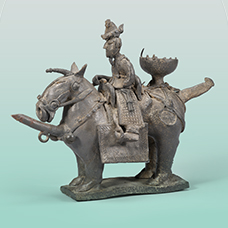
Art of Detail Fantastic Figurines
-
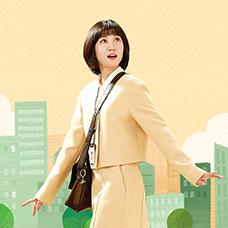
Film & TV Extraordinary Attorney Woo
-

Collaboration Countless Uses
-
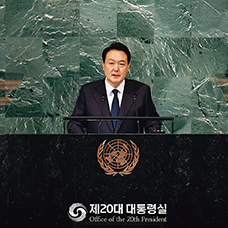
Current Korea Solidarity at a Watershed Moment
-

Global Korea K-indie Music Night in New York
